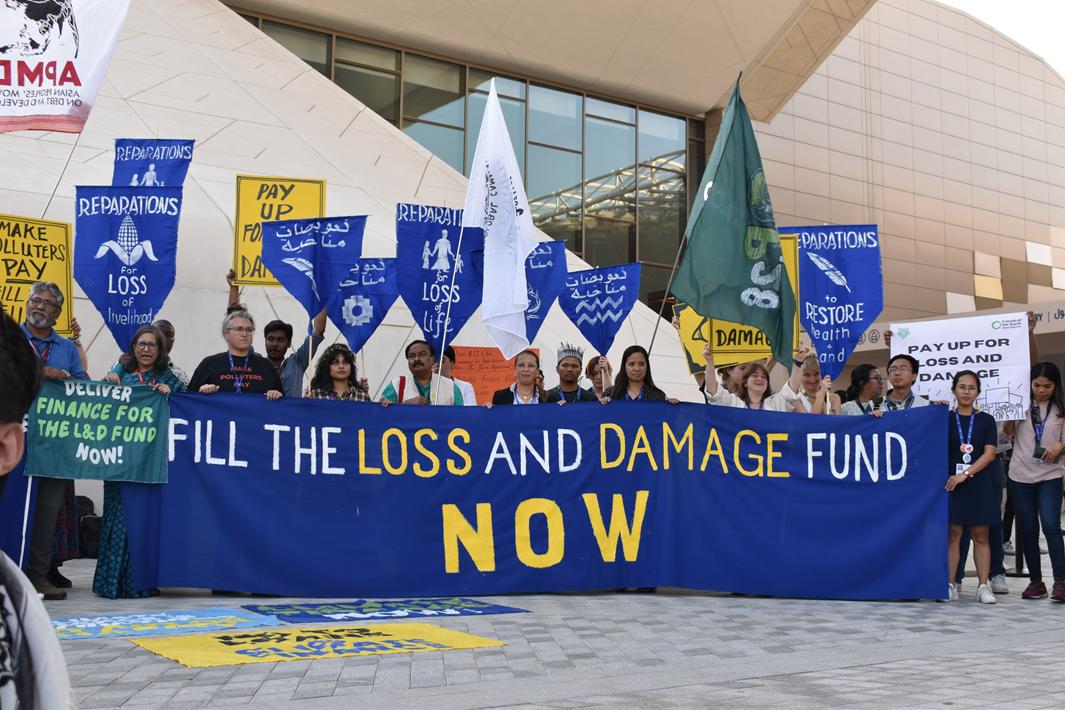By Paschal Norbert
ABU DHABI, APRIL 23, 2024 (CISA) – With the first meeting of the Loss and Damage Fund Board set to take place in Abu Dhabi, UAE, from April 30 to May 2, 2024, Caritas Internationalis and Catholic Humanitarian Agencies have in a letter listed priorities they believe should be actioned by the board in order to expeditiously operationalize and capitalize the international Loss and Damage Fund (LDF) meant to remedy the harms faced by communities most severely affected by climate change.
The letter of encouragement and appeal to the new board comes after higher-income countries that are primarily responsible for causing the climate crisis missed a deadline (January 31, 2024) to nominate their representatives to the board.
“Congratulations on your appointment to the board of the Loss and Damage Fund (LDF). We are grateful for your acceptance of this responsibility and your commitment to such a significant task. We understand the urgency of the moment and the immense challenges posed by climate change. The success of the LDF is crucial for achieving the goals of the Paris Agreement, supporting communities on the frontlines of climate impacts, and advancing a more equitable and just world,” notes Caritas.
The new LDF board faces a huge challenge in operationalizing the fund. The key priorities of the board include setting access modalities, allocation parameters, and a resource mobilization strategy to deliver funds to vulnerable countries and marginalized communities.
Aware of this daunting task, Caritas details six priority actions that the board must undertake, positing that these priorities have been informed by moral reflection and experiences of Catholic humanitarian agencies serving and responding to the needs of communities around the world.
It urges the board to quickly and not later than June 12, 2024, ensure that they are hosted by the World Bank as a Financial Intermediary Fund as set out in the COP28 decision text and also ensure funding modalities that are accessible, effective, and debt-free.
“Debt repayments are crippling many developing countries and those that are particularly vulnerable to climate risks. Climate finance from developed nations, often provided as loans, must not be perpetuated by the LDF,” Caritas argues, adding that the LDF “must also establish a window for small grants for vulnerable groups to receive directly the urgent funding they desperately need to rebuild their lives and livelihoods.”
Caritas, a consortium of 162 national Catholic relief and development agencies working in over 200 countries and territories worldwide, appeals to the LDF board to consider how the fund can support and complement initiatives that build climate resilience, recognizing that preventing future losses and damages is a priority for impacted communities.
“Bring a holistic perspective to the objectives of the LDF and avoid the distinction between economic and non-economic losses and damages. Climate-induced Loss and Damage goes beyond material possessions, encompassing the loss of ancient land, culture, ways of life, faith, mental health, and loved ones. Recognizing that non-economic losses and damages have tangible economic impacts is crucial for addressing the full scope of loss and damage,” it says.
Caritas also urges the board to prioritize amplifying the voices and experiences of climate-vulnerable communities and countries and formulate new long-term fundraising strategies to ensure that the Fund is well-resourced to fulfil its purpose and address the true scale of need.
“This needs to include specifying the relationship between the LDF and funding arrangements. For transparency, efficiency, and effectiveness, it will be critical for the board to specify how the LDF fund will act as a platform for facilitating coordination between itself and the funding arrangements,” said Caritas.
In pledging to work fruitfully with the board, Caritas stated “Our sincere hope is that the board will work collaboratively, efficiently, and effectively to assist the most vulnerable individuals who are suffering from the climate crisis, especially women, youth, disabled, elderly, and Indigenous Peoples who are particularly impacted.”
